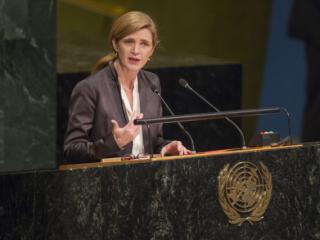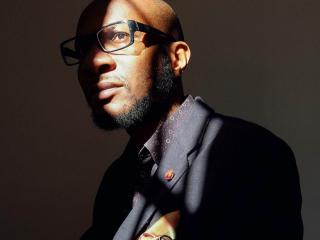In 1993, Norwegian explorer Erling Kagge became the first person to cross Antarctica alone. It took him 50 days. The thing that had the biggest impact on him was the silence.More
Interviews By Topic
Roland Griffiths is a neuroscientist at Johns Hopkins. He's just turned his attention to psilocybin, a classic hallucinogen commonly known as magic mushrooms. He tells Steve Paulson about his findings.More
Point of attack. Defensive Line. Football and war have a lot in common. Former foreign policy advisor to President Bill Clinton Michael Mandelbaum talks conflict and the game.More
Paul Beatty, the Booker Prize Winning Author of "The Sellout" recommends "The Nazi and the Barber," a novel by Holocaust survivor Edgar Hilsenrath. More
Talking about race is fraught these days, so it took guts for Paul Beatty to write his novel "The Sellout." It's a satire about a young black man who winds up on trial at the Supreme Court. And along the way, he enslaves an old friend and re-segregates the local high school.More
Steven Pinker presents a Dangerous Idea: things today are actually better than they've ever been.More
Conceptually, hope feels big, amorphous, hard to define exactly. But for the past few months, "To The Best Of Our Knowledge" producers have been trying anyway. Scientists, activists, futurists, theologians, artists, authors all weighed in on what they think when they hear the word "hope."More
Sometimes you stumble upon a book that sets you on a whole new path. For Israeli historian and philosopher Yuval Noah Harari — author of "Sapiens," "Homo Deus," and "21 Lessons for the 21st Century" — it wasn’t a novel, a memoir, or even a history book that changed his world. It was a book about chimpanzees.More
Samantha Power was President Obama's ambassador to the UN, taking part in life-and-death decisions, including whether to launch military strikes. She talks about her two biggest foreign policy challenges — whether to intervene in Libya and Syria.More
Was Qassem Soleimani 'assassinated'? 'Killed'? The legal differences are complicated, says Brookings Institution fellow Scott Anderson.More
The main character in Jeff VanderMeer’s other-worldly tale is a polymorphous bear who moves in magical and unexpected ways, and keeps secrets in his fur. It’s both a futuristic story and one with deep history, the kind of dystopian fiction that drew Yuknavitch in, again, and again.More
The author of "Lincoln in the Bardo" recommends Victor Klemperer's two-volume diary that reads as a slow-motion picture of what the Holocaust looked like before it was known Holocaust.More
Steve sat down with logician and mathematician Roger Antonsen and computer science pioneer Barbara J. Grosz to talk about how AI will challenge our own perception of intelligence in ways we might not expect.More
Lynne Cox is an extreme swimmer. At 18, she swam between the islands of New Zealand. She broke the men's and women's records for the English Channel. Then she did the unthinkable — swimming to Antarctica.More
Jean Rhys takes up a "mad" wife’s story in "Wide Sargasso Sea," an overlooked novel recommended by "Handmaid’s Tale" author Margaret Atwood.More
Piers Vitebsky is an anthropologist who studies the Eveny — also known as the "Reindeer People of Siberia." He tells Steve Paulson they keep herds of reindeer for meat, but also have personal, consecrated reindeer animal doubles, which they believe will die for them.More
Lucy Jane Bledsoe is a novelist who's made three trips to Antarctica as part of the National Science Foundation's Artists and Writers in Antarctica Program. She tells Anne Strainchamps that the place is addictive.More
Teju Cole grew up in Nigeria and then moved to U.S., joining millions of others in the African diaspora. He became an acclaimed novelist and photographer, and now celebrates the cosmopolitan culture of global cities, including Lagos and New York.More


















